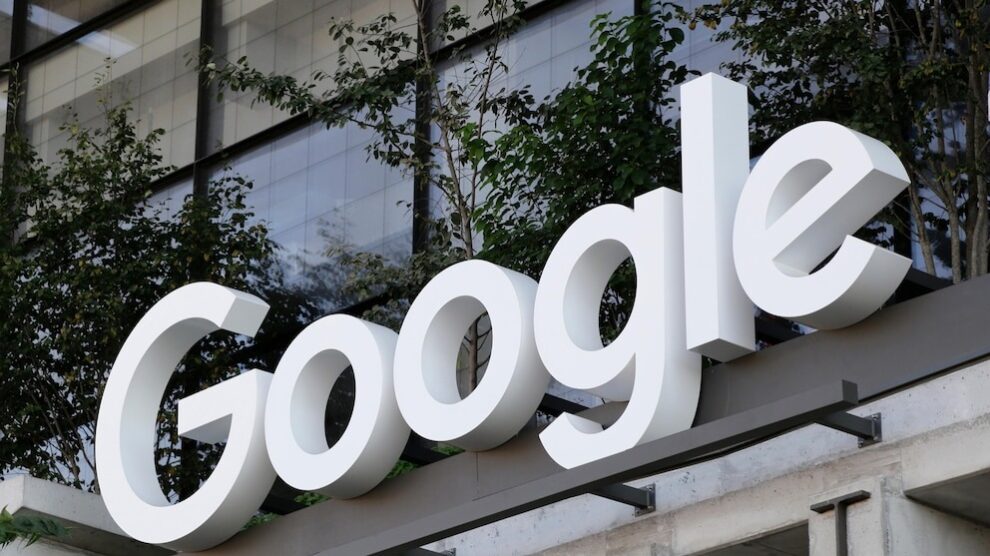Hold onto your hats, folks, because a major earthquake just shook the tech world! A jury in California has declared Epic Games victorious in their antitrust lawsuit against Google, handing David a resounding victory over the Play Store Goliath. This landmark decision has the potential to reshape the entire app store landscape, sending shockwaves through the industry.
So, what exactly happened?
Remember Fortnite? Yeah, that insanely popular game. Well, back in 2020, Epic decided to challenge Google’s monopoly on the Android app market by offering its own payment system within Fortnite, bypassing the hefty 30% fee Google charges developers. This, unsurprisingly, didn’t sit well with the tech giant, and thus began a legal battle that has captivated the tech world for over three years.
Breaking Down the Verdict:
The jury found Google guilty of violating antitrust laws by stifling competition and harming consumers. They agreed with Epic’s argument that forcing developers to use Google’s payment system and restricting alternative app stores unfairly limits consumer choice and drives up prices. This is a groundbreaking decision, setting a precedent that could have major implications for app stores across the board.
What Does This Mean for the Future?
Google may be down, but not out. They’ve already vowed to appeal the verdict, and the legal battle could still drag on for years. However, regardless of the final outcome, this ruling sends a clear message: the days of app store monopolies might be numbered.
Here are some potential consequences of this verdict:
- More Payment Options: Developers might get more freedom to choose their own payment systems, potentially leading to lower prices and more competition.
- Rise of Alternative App Stores: The door might open for new app stores to challenge the dominance of Google Play and Apple’s App Store.
- Increased Scrutiny of Tech Giants: Antitrust regulators worldwide might now look more closely at the practices of Big Tech companies like Google and Apple.
The Takeaway:
The Epic Games vs. Google lawsuit wasn’t just about Fortnite; it was about user choice, fair competition, and the future of the app ecosystem. While the ultimate impact is still unclear, one thing is certain: this is a victory for consumers and a significant blow to the dominance of tech giants. So, buckle up, because the fight for a more open and equitable app market is just getting started!
Remember:
- Epic Games won a landmark antitrust lawsuit against Google, challenging the Play Store’s monopoly on the Android app market.
- The jury found Google guilty of violating antitrust laws and harming consumers.
- This verdict could lead to more payment options for developers, the rise of alternative app stores, and increased scrutiny of Big Tech companies.
Whether you’re a casual gamer, a tech enthusiast, or simply someone who cares about fair competition, this is a development worth watching. The future of the app store might be changing before our eyes, and Epic Games just threw the first pebble in the pond. Get ready for the ripples!
The History Behind the Lawsuit
To fully understand the implications of this legal battle, it helps to examine the series of events that led up to it. Epic Games and Google have been at odds since 2018, when Epic launched Fortnite outside of the Google Play store to avoid paying Google’s 30% commission fee. This moved worked for a while, but mounting pressure from Google eventually forced Epic to add Fortnite to the Play Store in 2020.
However, Epic wasn’t ready to back down. Mere months after caving to Google’s ultimatum, Epic introduced a new direct payment system in Fortnite that allowed players to bypass Google’s payment processing fee. In response, Google removed Fortnite from the Play Store, leading Epic to file a lawsuit accusing Google of anticompetitive conduct.
Epic’s Key Allegations Against Google
In its lawsuit, Epic claimed that Google has a monopoly over the market for Android app distribution. They argue that through anticompetitive tactics, Google heavily discourages or outright blocks alternative app stores and payment methods. More specifically, Epic’s lawsuit targeted a few of Google’s key restrictions:
- Requiring app developers to use Google Play Billing for in-app purchases
- Prohibiting app developers from informing users about alternative purchase options outside apps
- Impeding distribution of Android apps outside the Google Play Store
According to Epic, these restrictions stifle innovation, inflate costs for developers and consumers, and cement Google’s control over the Android ecosystem. These anticompetitive practices form the core of Epic’s argument that Google is violating antitrust laws.
Google’s Response and Defense
Facing intense scrutiny, Google argued that its Play Store policies are not only legal but also benefit the Android platform:
- Google claims the commissions fund ongoing support, development, and security for the Play Store and Android OS.
- They also say restrictions on outside payment systems protect users from fraud and unexpected billing.
- Google argues that users have choice between Android and iOS devices, so there is competition between platforms.
However, the verdict shows that these arguments failed to convince the jury, who sided with Epic’s claims that Google’s Play Store dominance harms competition and consumers. The trial has exposed dark patterns in Google’s practices, despite their technical legality up to this point. The days of mobile platforms being walled gardens with little oversight may be ending.
Examining the Wider App Store Landscape
Stepping back from this specific legal battle, accusations of anticompetitive behavior have been swirling around major app stores for years now. Both Apple and Google charge similar 30% commission fees on in-app purchases and subscriptions across their respective app stores. Developers, regulators, and even large companies like Spotify have increasingly alleged that these fees inflate costs for consumers.
App stores wield immense power over the distribution and monetization of mobile apps – power that many argue has gone unchecked. Between the iOS App Store and the Google Play Store, the two companies control virtually 100% of the Western mobile app market. Critics argue that with dominance at this scale, oversight is warranted to prevent anti-competitive practices that limit consumer choice and developer options.
And regulators seem to be in agreement that closer examination is due. The EU introduced the Digital Markets Act specifically targeting anti-competitive practices by Big Tech gatekeepers, including app store policies. Multiple bills aimed at loosening restrictions have been introduced in the US as well. Investigations, hearings, and lawsuits examining app store dominance have popped up around the globe.
In that wider context, Epic’s legal challenge against Google forms part of a broader re-evaluation around whether app stores have accumulated too much control and whether their practices still serve developer and consumer interests. The days of mobile platforms as isolated, restricted domains appear to be ending.
What Comes Next?
In the more immediate future, Google will likely appeal the Epic Games verdict. And similar lawsuits against Apple’s iOS policies continue making their way through courts. But regardless of the ultimate outcomes, regulators worldwide seem to have app stores firmly in their crosshairs now.
We will likely see mounting pressure for platforms to relax restrictions, allow alternative payment systems, reduce commission rates, and open their ecosystems to more competition. And new legislation could mandate changes if voluntary moves don’t occur. Side-loading apps, third-party app stores, unrestricted in-app payments, and more consumer choice may soon become commonplace realities.
Big Tech app store domination served its purpose for a while, allowing platforms to spread and thrive while providing developers streamlined distribution channels. But the balance of power may have shifted too far, stifling competition rather than fueling innovation. This course correction should benefit consumers and app creators alike – lower costs, more options, and continued evolution.
Epic Games versus Google was a true David versus Goliath battle, the implications of which stretch far beyond Fortnite. And David may have just landed the first real blow against Big Tech’s walled gardens, forever changing the rules of the game. Grab some popcorn and enjoy the fireworks – this saga is far from over!










Add Comment